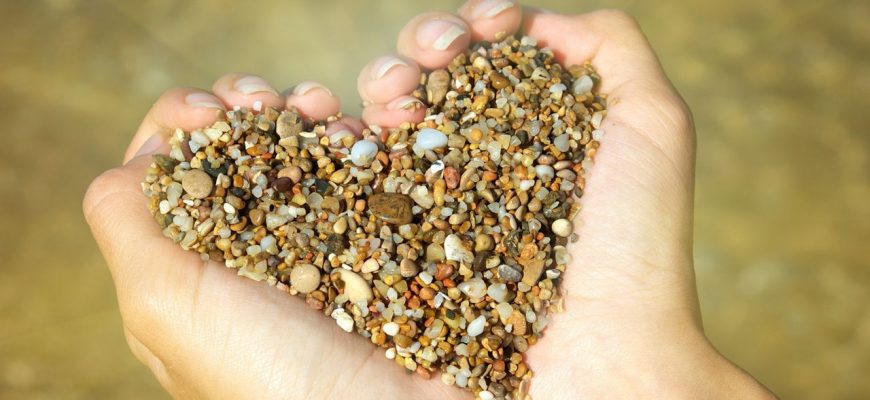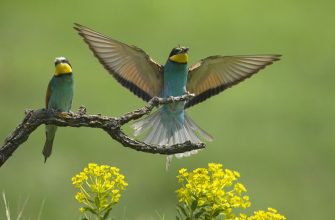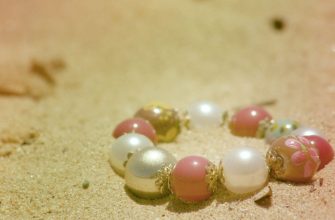lingua fennica
Translation, Proofreading, Writing
The Bronze Horseman (Медный всадник), Alexander Pushkin (i)

I’ve hesitated to attempt to translate Pushkin. He is the greatest of Russian poets, and one of humanity’s greatest too. But now I’ve taken the plunge, and I’m risking a major undertaking. Here’s the introduction to The Bronze Horseman. I’m gripped, so the rest will follow over the next few weeks.
Anyone who’s been to St Petersburg can only marvel at its beauty and atmosphere. I hope I may have in some way emulated Pushkin’s unparallelled evocation of it. Metre is unquestionably paramount here – any translation that ignores Pushkin’s rhythm is fatally flawed.
INTRODUCTION
On shore abandoned, kissed by wave,
He stood, of mighty thoughts the slave,
And scanned horizon’s bounds. And amply
The river coursed; and boat of knave
Was quite alone and questing damply.
Along the swampy, mossy shore
Were darkly looming here and there
The mean abodes of Finns benighted;
And forest, knowing light no more
Of sun by fog’s miasma blighted,
With whisper hugged.
I love you, Peter’s great creation,
I love your aspects, soft and hard,
The flow of Neva’s great migration
That courses through her granite guard,
The iron tracery of your railings,
Pellucid twilight, moonless sheen,
Your placid evenings’ thoughtful trailings,
And time in my apartment mean
Spent studying in lamp-less glimmer,
And sleeping buildings’ gentle shimmer
Of empty streets, as if aflame
The Admiralty’s gold spire of fame,
And how the dawn, forbidding capture
Of gilded heavens night can’t claim,
Dismounts to stablish gilded rapture
And half an hour of dusk does frame.
I love the placid, frosty breezes
That give your winter savage bite,
And run of sleighs on Neva pleases,
And, ruddy-cheeked, the girls delight,
And scudding balls, and noise, and glitter
And, at the hour of idle fun,
The foaming glasses’ hiss and chitter
As punch it flames towards the sun.
I love the army’s exercising
In war games round the Fields of Mars,
The beauty, uniform, surprising
Of horse and soldier of the Tsars,
They move in tandem, quite as one,
And bearing shredded flags of victory
Heads copper-clad in valedictory
Acknowledgement of battles won.
I love you, capital of valour,
The smoke and din of mighty fort
When Empress ends her midnight labour,
Bestows a son on royal court,
Or when has routed been the foe
Our Russia shouts in celebration
Or when her cobalt ice has split
To seas the Neva carries it,
And joys in spring’s anticipation.
Oh Peter’s city, flaunt yourself,
As Mother Russia stand defiant,
Defeated nature will herself
Your servant be, to you compliant;
May Finnish waves in rout forget
Their enmity and hold of ages
And may they cease, those stormy rages,
And never Peter’s rest beset!
A dreadful time it was, and while
The memories of it linger freshly,
My friends for you I’ll tell the tale,
Begin to spin it for you specially.
But be prepared for sad travail.
На берегу пустынных волн
Стоял он, дум великих полн,
И вдаль глядел. Пред ним широко
Река неслася; бедный чёлн
По ней стремился одиноко.
По мшистым, топким берегам
Чернели избы здесь и там,
Приют убогого чухонца;
И лес, неведомый лучам
В тумане спрятанного солнца,
Кругом шумел.
Люблю тебя, Петра творенье,
Люблю твой строгий, стройный вид,
Невы державное теченье,
Береговой ее гранит,
Твоих оград узор чугунный,
Твоих задумчивых ночей
Прозрачный сумрак, блеск безлунный,
Когда я в комнате моей
Пишу, читаю без лампады,
И ясны спящие громады
Пустынных улиц, и светла
Адмиралтейская игла,
И, не пуская тьму ночную
На золотые небеса,
Одна заря сменить другую
Спешит, дав ночи полчаса.
Люблю зимы твоей жестокой
Недвижный воздух и мороз,
Бег санок вдоль Невы широкой,
Девичьи лица ярче роз,
И блеск, и шум, и говор балов,
А в час пирушки холостой
Шипенье пенистых бокалов
И пунша пламень голубой.
Люблю воинственную живость
Потешных Марсовых полей,
Пехотных ратей и коней
Однообразную красивость,
В их стройно зыблемом строю
Лоскутья сих знамен победных,
Сиянье шапок этих медных,
На сквозь простреленных в бою.
Люблю, военная столица,
Твоей твердыни дым и гром,
Когда полнощная царица
Дарует сына в царской дом,
Или победу над врагом
Россия снова торжествует,
Или, взломав свой синий лед,
Нева к морям его несет
И, чуя вешни дни, ликует.
Красуйся, град Петров, и стой
Неколебимо как Россия,
Да умирится же с тобой
И побежденная стихия;
Вражду и плен старинный свой
Пусть волны финские забудут
И тщетной злобою не будут
Тревожить вечный сон Петра!
Была ужасная пора,
Об ней свежо воспоминанье…
Об ней, друзья мои, для вас
Начну свое повествованье.
Печален будет мой рассказ.
Рассказ о медном всаднике на английском
Bibliography
The section of Encyclopedia of Literary Translation Into English, edited by Olive Classe, London: Routledge 2000, referring to the Bronze Horseman can be found here.
Microsoft Word Versions of the Original and Some Translations
Chronological Order
The Overall Structure of the Poem
Detailed Poetic Structure
Audio version
Music
Mickiewicz’s Digression
Early references to Pushkin in English
Original and Translations of lines 4458
Pushkin
Люблю тебя, Петра творенье,
Люблю твой строгий, стройный вид,
Невы державное теченье,
Береговой ее гранит,
Твоих оград узор чугунный,
Твоих задумчивых ночей
Прозрачнчыь сумрак, блеск безлунный,
Когда в комнате моей
Пишу, читаю без лампады,
И ясны спящие громады
Пустинных улиц, и светла
Адмиралтейская игла,
И, не пуская тьму ночную
Спешит, дав ночи полчаса.
Alaev
I love this, Peter’s great creation,
I love its strict and shapely look,
Its river sovereign flotation,
Its granite covered outlook,
The iron patterns of its fencing line,
The thoughtful glitter of its night transparent dusk,
The moonlight shine
When in my quarters with delight
I read and write without light
And buildings glittering with might on sleeping streets
And in the middle, the Admiralty’s proud needle.
And not allowing the darkness to settle on the golden skies
The early dawn is very wise
To start its gorgeous daily rise.
Arndt 1972
I love you, Peter’s creation,
I love your austere, comely look,
Nevá’s majestic flow,
The granite of her banks,
The iron pattern of your railings,
Of your pensive nights
The translucent twilight, the moonless sheen,
When in my room I
Write [or] read without a lamp,
And clear there show the slumbering expanses
Of deserted streets, and brightly shines
The needle of the Admiralty [spire],
From the golden skies,
One dawn hurries to relieve the other
Allowing half-an-hour to night.
Arndt 1993
I love thee, Peter’s own creation,
I love thy stern and comely face,
Nevá’s majestic perfluctation,
Her bankments’ granite carapace,
The patterns laced by iron railing,
And of thy meditative night
The lucent dusk, the moonless paling;
When in my room I read and write
Lampless, and street on street stand dreaming,
Vast luminous gulfs, and, slimly gleaming,
The Admiralty&rtsquo;s needle bright;
And rather than let darkness smother
The lustrous heavens’ golden light,
One twilight glow speeds on the other
To grant but half an hour to night.
Bonver
Briggs
O, Peter’s work. I love you so!
love your stateliness and strength.
The Neva’s soft majestic flow.
The granite bordering her length,
Your iron railings’ strong design.
And through the thoughtfulness of night
Your limpid twilight’s moonless shine.
When in my room I stay to write
Or sit, without a lamp, to read.
The sleeping streets shine clear indeed.
Vast masses emptied of their people;
Bright, too, the Admiralty steeple.
The darkness is denied possession
Of this, the golden firmament;
Dawn follows dawn in swift succession;
Night’s borrowed half-hour soon is spent.
Coxwell
I love thee, Peter’s great creation,
And, cause of endless admiration,
Neva’s commanding, sovereign stream,
With ample banks of strength supreme:
I love thy ramparts’ strict design,
Thy pensive nights so light and fine
That, in my room, I hardly need
A friendly lamp to write and read.
I pass great buildings, and yet meet
No movement in the sleeping street.
How bright’s the Admiralty spire,
So much than other buildings higher!
Then, as I walk, the heavens change:
So brief a night is passing strange.
Dewey
O how I love you, Peter’s daughter!
Your aspect, graceful yet austere;
Nevá’s augustly flowing water
And granite banks: these I hold dear;
Your railings, finely ornamented;
Your pensive nights of moonless light
And lambent dusk, when I, contented,
Sit in my room and read and write
Without a lamp, while in the nearly
Deserted streets huge buildings clearly
Loom up, asleep; and solar fire
Plays on the Admiralty spire;
And Dusk directly (as if plotting
To keep the golden skies alight)
Hands on the torch to Dawn, allotting
A brief half-hour to cheated Night.
Elton
I love thee, city of Peter’s making;
I love thy harmonies austere,
And Neva’s sovran waters breaking
Along her banks of granite sheer;
Thy tracery iron gates; thy sparkling,
Yet moonless, meditative gloom
And thy transparent twilight darkling;
And when I write within my room
Or, lampless, read, then, sunk in slumber,
The empty thoroughfares, past number,
Are piled, stand clear upon the night;
The Admiralty spire is bright;
Nor may the darkness mount, to smother
The golden cloudland of the light,
For soon one dawn succeeds another
With barely half-an-hour of night.
Fennell
Garnett
Since lines 4358 are not in this version, we quote the translation of lines 404423:
Evgenii shuddered. In him thoughts clarified frighteningly. He had recognised the place where the flood had played, where predatory waves had crowded, rebelling viciously around him, and the lions and the square and him [Peter the Great] who motionless rose up with his bronze head in the gloom, him by whose fateful will the city had been founded below sea level. He is horrible in the surrounding gloom! What a thought in his brow! What strength concealed in him! And in this horse what fire! Where are you galloping, proud steed, and where will you drop your hooves? O powerful commander of destiny! Did you not thus over the abyss itself, on a height, with iron bridle, raise up Russia onto its hind legs?
Jarintzov
I love thee, Peter’s own creation;
I love thy stiff and stately sight,
Broad Neva’s powerful fluxation,
Her great embankments’ granite might,
Inwrought designs of iron gateways,
Thy still, transparent, thoughtful nights
When soft and silvery moonless glimmer
Enters my roomand, without lights,
I read and write past midnight chiming,
While, clear cut, sleep the giant buildings
Along the empty streets, and higher
Soars bright, the Admiralty spire.
And, the deep dark of night not letting
Touch the gold skies, the dawn of day
To take the twilight’s place is fretting,
Just yielding night one half-hour’s sway.
Johnston
I love you, Peter’s own creation,
I love your stern, your stately air,
Nevá&rtsquo;s majestical pulsation,
the granite that her quaysides wear,
your railings with their iron shimmer,
your pensive nights in the half-gloom,
translucent twilight, moonless glimmer,
when, sitting lampless in my room
I write and read; when faintly shining,
the streets in their immense outlining
are empty, given up to dreams;
when Admiralty’s needle gleams;
when not admitting shades infernal
into the golden sky, one glow
succeeds another, and nocturnal
tenure has one half-hour to go;
Kayden
I love thee, Peter’s bold creation!
I love thy air austere, thy lone
Great squares, and Neva’s fascination
Between her banks of granite stone;
Thy lace-like iron gates; thy shining,
Yet meditative evening gloom,
And thy translucent night enshrining
Me when, lampless, in my quiet room
I read or write. There calmly dreams
The empty street and, crystal-bright,
The spire of the Admiralty gleams
When barely half-an-hour of night
May dim the silver sky, from dawn
To dawn, when invisibly the sun
Shines in a world of eerie light.
Langran
Lowenfeld
I love you, place of Peter’s making,
I love your stern and stylish face,
The Neva’s mighty current breaking
On her embankment’s granite grace,
The wrought-iron patterns of your fences,
Your twilight’s clear and thoughtful gloom
On summer evenings, shining moonless,
When I sit sleepless in my room,
And write and read and need no lanterns:
How gleam the buildings, sleeping monsters,
On streets deserted! And I see
The Needle of the Admiralty.
And not allowing murk nocturnal
Into the heavens’ golden bower,
Each dawn relieves each dawn eternal
That race leaves night but half an hour.
Mitchell
I love you, miracle of Peter’s,
Your stern and graceful countenance,
the broad Nevá’s imperious waters,
the granite blocks that line your banks,
the railings in cast-iron muster,
the melancholy of you nights,
transparent twilight, moonless lustre,
when, in my room, I use no lights
to write and read, when massed facades
and sleeping empty boulevards
are clear to see, and all afire
glitters the admiralty’s spire,
and, not permitting night to smother
the golden skies, there rushes through
a new dawn to replace the other,
and night gets half-an-hour’s due.
Nabokov
Since lines 4358 are not in this version, we quote the translation of lines 7583:
O military capital, I love
the smoke and thunder of your fortress [gun]
when of the Midnight Realm the empress
gives the imperial house a son
or victory over the foe
Russia again is celebrating,
or having shattered her blue ice,
the Neva bears it to the sea
and, sensing vernal joys, rejoices.
Oh act of Peter, I’m in love
with your strict and structured form,
the Neva’s commanding flow,
its granite banks, the design
in the iron railings, the translucent
dusk and moonless sheen
of dream-soaked nights.
As I write in my room I need
no lamp. Bright giants are asleep
on the empty streets,
and the needle of the Admiralty shines,
and banning the gloom from gold skies,
dusk hurries on towards dawn,
and night makes do with a half-hour.
Obolensky
Powell-Jones
I love you, Peter’s creation
I love your stern and graceful look
The Neva’s flowing animation
Held by its hard and granite hook
Graced by its iron fretted rails
City of nights, your crystal dusk
Moonless nights, still, clear and bright
I sit in my room, j’ai pas de feu
I write and read without a lamp
The streets are clear, the gleaming stamp
Of empty streets, bright as new wire
The Admiralty’s shining spire
And not forgiving half the night
For golden skies, for dawn’s own blue
One dawn another will pursue
Hastily, leaving a half-hour’s night.
Thomas
I love you, Peter’s creation, I love your stern
Harmonious look, the Neva’s majestic flow,
Her granite banks, the iron tracery
Of your railings, the transparent twilight and
The moonless glitter of your pensive nights,
When in my room I write or read without
A lamp, and slumbering masses of deserted
Streets shine clearly, and the Admiralty spire
Is luminous, and, without letting in
The dark of night to golden skies, one dawn
Hastens to relieve another, granting
A mere half-hour to night.
Tomlinson/Gifford
Peter’s creation, I admire
your scapes both graceful and severe,
the Neva’s sovereign flow,
cast-iron rail and granite shapes
along the banks, the nights which grow
pensive in that transparent dusk,
that moonless brilliance when I
within my room can write and read
needing no lamp, and clear out there
sleep crowding, desolate streets, and bright
glints the Admiralty spire:
refusing to the dark its right
to trespass on the golden height,
the glow that’s hurrying to replace
the glow that’s gone, will grant no more
to night itself than one half hour.
Turner 1882
Since lines 4358 are not in this version, we quote the translation of lines 404423:
Evjenie shuddered. His thoughts
Became strangely clear. He saw again
The place where the torrent had wildly played,
Where the raging waves had dashed
In angry noise around him;
He saw again the lion, the square, and him
Whose bronze head motionless
Towered above all in the darkness of the night,
Ever with his hand far outstretched,
As if proudly scanning the city that lay beneath.
Tortured with wild woe,
The poor crazed creature roamed round it,
And read the plain-cut inscription on the rock,
And his heart, crushed with its great grief,
Grew dead within him. And then, he pressed
His hot brow against the cold iron rail,
A thick mist came over his eyes,
And a cold tremble ran through his every limb,
As he shuddered, and stood there, lost in gloom,
Before Russia’s glorious hero;
Turner 1899
I love thee, work of Peter’s hand!
I love thy stern, symmetric form;
The Neva’s calm and queenly flow
Betwixt her quays of granite-stone,
With iron tracings richly wrought;
Thy nights so soft with pensive thought,
Their moonless glow, in bright obscure,
When I alone, in cosy room,
Or write or read, night’s lamp unlit;
The sleeping piles that clear stand out
In lonely streets, and needle bright,
That crowns the Admiralty’s spire;
When, chasing far the shades of night,
In cloudless sky of golden pure,
Dawn quick usurps the pale twilight,
And brings to end her half-hour reign.
Wilson
Since lines 4358 are not in this version, we quote the translation of lines 404423:
Zheleznova
Illustration
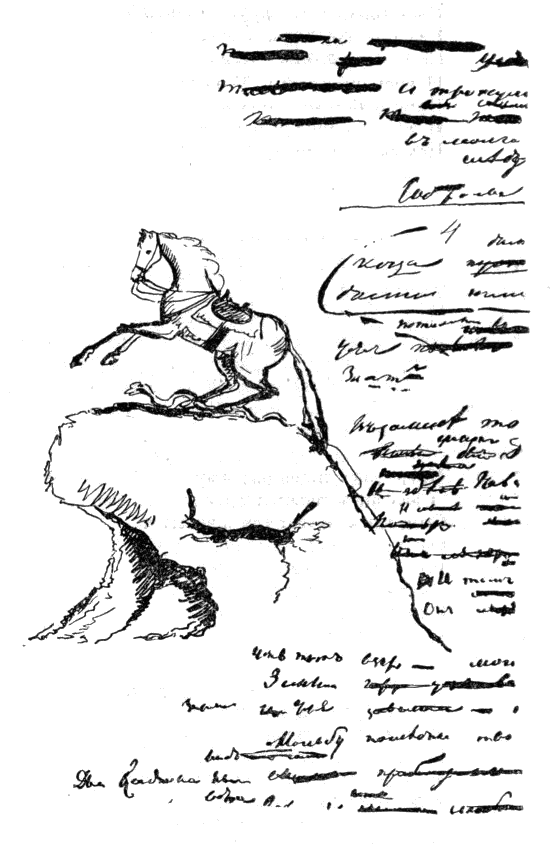
Wordcloud
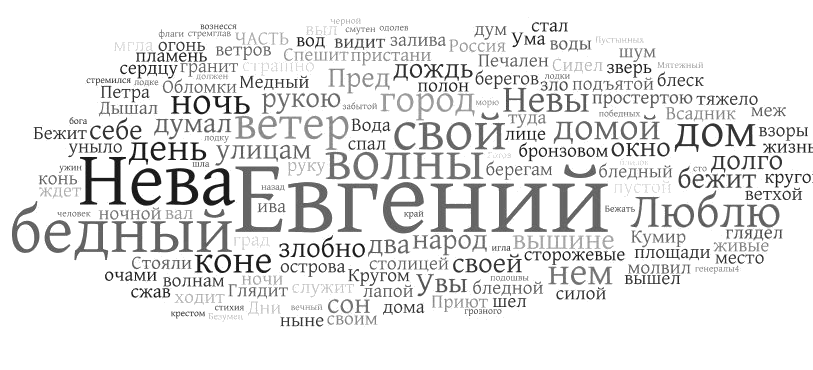

Александр Пушкин
The bronze Horseman / Медный всадник. Книга для чтения на английском языке
The Bronze Horseman
(A Petersburg Tale)
Translated by Oliver Elton
Foreword
‘The occurrence related in this tale is based on fact. The details of the flood are taken from the journals of the day. The curious may consult the information collected by V. I. Berkh’.
Introduction
There, by the billows desolate, He stood, with mighty thoughts elate, And gazed, but in the distance only
A sorry skiff on the broad spate Of Neva drifted seaward, lonely.
The moss-grown miry bank with rare
Hovels were dotted here and there
Where wretched Finns for shelter crowded;
The murmuring woodlands had no share
Of sunshine, all in mist beshrouded.
And thus
He mused: “From here, indeed
Shall we strike terror in the Swede?
And here a city by our labor
Founded, shall gall our haughty neighbor;
“Here cut” – so Nature gives command —
“Your window [1] through on Europe; stand
Firm-footed by the sea, unchanging!
Ay, ships of every flag shall come
By waters they had never swum,
And we shall revel, freely ranging.”
A century – and that city young,
Gem of the Northern world, amazing,
From gloomy wood and swamp upspring,
Had risen, in pride and splendor blazing.
Where once, by that low-lying shore,
In waters never known before
The Finnish fisherman, sole creature,
And left forlorn by stepdame Nature,
Cast ragged nets, – today, along
Those shores, astir with life and motion,
Vast shapely palaces in throng
And towers are seen: from every ocean,
From the world’s end, the ships come fast,
To reach the loaded quays at last.
The Neva now is clad in granite
With many a bridge to overspan it;
The islands lie beneath a screen
Of gardens deep in dusky green.
To that young capital is drooping
The crest of Moscow on the ground,
A dowager in purple, stooping
Before an empress newly crowned.
I love thee, city of Peter’s making;
I love thy harmonies austere,
And Neva’s sovran waters breaking
Along her banks of granite sheer;
Thy tracery iron gates; thy sparkling,
Yet moonless, meditative gloom
And thy transparent twilight darkling;
And when I write within my room
Or, lampless, read, – then, sunk in slumber,
The empty thoroughfares, past number,
Are piled, stand clear upon the night;
The Admiralty spire is bright;
Nor may the darkness mount, to smother
The golden cloudland of the light,
For soon one dawn succeeds another
With barely half-an-hour of night.
I love thy ruthless winter, lowering
With bitter frost and windless air;
The sledges along Neva scouring;
Girls’ cheeks – no roses so bright and fair!
The flash and noise of balls, the chatter;
The bachelor’s hour of feasting, too;
The cups that foam and hiss and spatter,
The punch that in the bowl burns blue.
I love the warlike animation
On playing-fields of Mars; to see
The troops of foot and horse in station,
And their superb monotony;
Their ordered, undulating muster;
Flags, tattered on the glorious day;
Those brazen helmets in their luster
Shot through and riddled in the fray.
I love thee, city of soldiers, blowing
Smoke from thy forts: thy booming gun;
– A Northern empress is bestowing
Upon the royal house a son!
Or when, another battle won,
Proud Russia holds her celebration;
Or when the Neva breaking free
Her dark blue ice bears out to sea
And scents the spring, in exultation.
Now, city of Peter, stand thou fast,
Foursquare, like Russia, vaunt thy splendor!
The very element shall surrender
And make her peace with thee at last.
Their ancient bondage and their rancorous
The Finnish waves shall bury deep
Now vex with idle spite that cankers
Our Peter’s everlasting sleep!
There was a dreadful time, we keep
Still freshly on our memories painted;
And you, my friends, shall be acquainted
By me, with all that history:
A grievous record it will be.
O’er darkened Petrograd there rolled
November’s breath of autumn cold,
And Neva with her boisterous billow
Splashed on her shapely bounding wall
And tossed in restless rise and fall
Like a sick man upon his pillow.
Twas late, and dark had fallen; the rain
Beat fiercely on the window-pane;
A wind that howled and wailed was blowing.
Twas then that young Evgeny came
Home from a party – I am going
To call our hero by that name,
For it sounds pleasing, and moreover
My pen once liked it; why discover
The needless surname? – True, it may
Have been illustrious in past ages,
– Rung, through tradition, in the pages
Of Karamzin; and yet, today
That name is never recollected,
By Rumour and the World rejected.
Our hero – somewhere – served the State;
He shunned the presence of the great;
Lived in Kolomna; for the fate
Cared not of forbears dead and rotten,
Or antique matters long forgotten.
So, home Evgeny came, and tossed
His cloak aside; undressed; and sinking
Sleepless upon his bed, was lost
In sundry meditations – thinking
Of what? – How poor he was; how pain
And toil might some day hope to gain
An honored, free, assured position;
How God, it might be, in addition
Would grant him better brains and pay.
Such idle folk there were, and they,
Lucky and lazy, not too brightly
Gifted, lived easily and lightly;
And he – was only in his second
Year at the desk.
He further reckoned
Those still the ugly weather held;
That still the river swelled and swelled;
That almost now from Neva’s eddy
The bridges had been moved already;
That from Parasha he must be
Parted for some two days, or three.
And all that night he lay, so dreaming,
And wishing sadly that the gale
Would bate its melancholy screaming
And that the rain would not assail
The glass so fiercely… But sleep closes
His eyes at last, and he reposes,
But see, the mists of that rough night
Thin out, and the pale day grows bright;
That dreadful day! – For Neva, leaping
Seaward all night against the blast
Was beaten in the strife at last,
Against the frantic tempest sweeping;
And on her banks at break of day
The people swarmed and crowded, curious,
And reveled in the towering spray
That spattered where the waves were furious.
But the wind driving from the bay
Dammed Neva back, and she receding
Came up, in wrath and riot speeding;
And soon the islands flooded lay.
Madder the weather grew, and ever
Higher upswelled the roaring river
And bubbled like a kettle, and whirled
And like a maddened beast was hurled
Swift on the city. And things routed
Fled from its path, and all about it
A sudden space was cleared; the flow
Dashed in the cellars down below;
Canals above their borders spouted.
Behold Petropol floating lie
Like Triton in the deep, waist-high!
A siege! The wicked waves, attacking
Climb thief-like through the windows;
backing,
The boats sternforemost smite the glass;
Trays with their soaking wrappage pass;
And timbers, roofs, and huts all shattered,
The wares of thrifty traders scattered,
And the pale beggar’s chattels small,
Coffins from sodden graveyards – all
Swim in the streets!
And contemplating
God’s wrath, the folk their doom are waiting.
All will be lost; ah, where shall they
Find food and shelter for today?
The glorious emperor, now departed,
In that grim year was sovereign
Of Russia still. He came, sick-hearted,
Out on his balcony, and in pain
He said: “No Tsar, with God, is master
Over God’s elements!” In thought
He sat, and gazed on the disaster
Sad-eyed, and on the evil wrought;
For now the squares with lakes
were studded,
Their torrents broad the streets
had flooded,
And now forlorn and islander
The palace seemed. The emperor said
One word: – and see, along the highways
His generals [2] hurrying, through the byways!
From city’s end to end they sped
Through storm and peril, bent on saving
The people, now in panic raving
And drowning in their houses there.
New-built, high up in Peter’s Square
A corner mansion then ascended;
And where its lofty perron ended
Two sentry lions stood at guard
Like living things, and kept their ward
With paw uplifted. Here, bare-headed,
Pale, rigid, arms across his breast,
Upon the creature’s marble crest
Sat poor Evgeny. But he dreaded
Nought for himself; he did not hear
The hungry rollers rising near
And on his very footsoles plashing,
Feel on his face the rainstorm lashing,
Or how the riotous, moaning blast
Had snatched his hat. His eyes were fast
Fixt on one spot in desperation
Where from the deeps in agitation
The wicked waves like mountains rose,
Where the storm howled, and round were driven
Fragments of wreck… There,
God in Heaven!
Hard by the bay should stand,
and close,
Alas, too close to the wild water,
A painless fence, a willow-tree,
And there a frail old house should be
Where dwelt a widow, with a daughter
Parasha – and his dream was she!
His dream – or was it but a vision,
All that he saw? Was life also
An idle dream which in derision
Fate sends to mock us here below?
And he, as though a man enchanted
And on the marble pinned and planted
Cannot descend, and round him lie
Only the waters. There, on high,
With Neva still beneath him churning,
Unshaken, on Evgeny turning
His back, and with an arm flung wide,
Behold the Image sit, and ride
Upon his brazen horse astride!
But now, with rack and ruin sated
And weary of her insolence
And uproar, Neva, still elated
With her rebellious turbulence,
Stole back, and left her booty stranded
And unregarded. So a bandit
Bursts with his horde upon a village
To smash an slay, destroy and pillage;
Whence yells, and violence, and alarms,
Gritting of teeth, and grievous harms
And wailing’s; then the evildoers
Rush home; but dreading the pursuers
And sagging with the stolen load
They drop their plunder on the road.
Meanwhile the water had abated
And pavements now uncovered lay;
And our Evgeny, by dismay
And hope and longing agitated,
Sore-hearted to the river sped.
But still it lay disquieted
And still the wicked waves were seething
In pride of victory, as though
A flame was smoldering below;
And heavily was Neva breathing
Like to a horse besprent with foam
Who gallops from the battle home.
Evgeny watches, and descrying
By happy chance a boat, goes bluing
To hail the ferryman; and he,
Unhired and idle, willingly
Convoys him for a threepence, plying
Through that intimidating sea.
The old tried oarsman long contended
With the wild waters, hour by hour,
Sunk in the trough, the skiff descended
Mid rollers, ready to devour
Rash crew and all – at last contriving
To make the farther shore.
Arriving,
Evgeny – evil is his lot! —
Runs to the old street, – and knows it not.
All, to his horror, is demolished,
Leveled or ruined or abolished.
Houses are twisted all awry,
And some are altogether shattered,
Some shifted by the seas; and scattered
Are bodies, flung as bodies lie
On battlefields. Unthinkingly,
Half-fainting, and excruciated,
Evgeny rushes on, awaited
By destiny with unrevealed
Tidings, as in a letter sealed.
He scours the suburb; and discerning
The bay, he knows the house is near;
And then stops short, ah, what is here?
Retreating, and again returning,
He looks – advances – look again.
‘Tis there they dwelt, the marks are plain;
There is the willow. Surely yonder
The gate was standing, in the past;
Now, washt away! No house! – O’ercast
With care, behold Evgeny wander
Forever rounds and rounds the place,
And talk aloud, and strike his face
With his bare hand. A moment after,
He breaks into a roar of laughter.
The vapors of the night came down
Upon the terror-stricken town,
But all the people long debated
The doings of the day, and waited
And could not sleep. The morning light
From pale and weary clouds gleamed bright
On the still capital; no traces
Now of the woes of yesternight!
With royal purple it effaces
The mischief; all things are proceeding
In form and order as of old;
The people are already treading,
Impassive, in their fashion, cold,
Through the cleared thoroughfares, inheeding;
And now official folk forsake
Their last night’s refuge, as they make
Their way to duty. Greatly daring,
The huckster now takes heart, unbarring
His cellar, late the prey and sack
Of Neva, – hoping to get back
His heavy loss and wasted labor
Out of the pockets of his neighbor.
The drifted boats from each courtyard
Are carried.
To a certain bard,
A count, a favorite of heaven
To one Khvostov, the theme was given
To chant in his immortal song
How Neva’s shores had suffered wrong.
But my Evgeny, poor, sick fellow! —
Alas, the tumult in his brain
Had left him powerless to sustain
Those shocks of terror. For the bellow
Of riotous winds and Neva near
Resounded always in his ear;
A host of hideous thoughts attacked him,
A kind of nightmare rent and racked him,
And on he wandered silently;
And as the week, the month, went by,
Never came home. His habitation,
As time ran out, the landlord took,
And leased the now deserted nook
For a poor poet’s occupation.
Nor ever came Evgeny home
For his belongings; he would roam,
A stranger to the world; his ration
A morsel tendered in compassion
Out of a window; he would tramp
All day, and on the quay would camp
To sleep; his garments, old and fraying,
Were all in tatters and decaying.
And the malicious boys would pelt
The man with stones; and of the felt
The cabman’s whiplash on him flicking;
For he had lost the skill of picking
His footsteps, – deafened, it may be,
By fears that clamored inwardly.
So, dragging out his days, ill-fated,
He seemed like something mistreated,
No beast, nor yet of human birth,
Neither a denizen of earth
Nor phantom of the dead.
Belated
One night, on Neva wharf he slept.
Now summer days toward autumn crept;
A wet and stormy wind was blowing,
And Neva’s sullen waters flowing
Plashed on the wharf and muttered there
Complaining – beat the slippery stair
As suitors beat in supplication
Unheeded at a judge’s door.
In gloom and rain, amid the roar
Of winds, – a sound of desolation
With cries of watchmen interchanged
Afar, who through the darkness ranged, —
Our poor Evgeny woke; and dounted,
By well-remembered terrors haunted,
He started sharply, rose in haste,
And forth upon his wanderings paced;
– And halted on a sudden, staring
About him silently, and wearing
A look of wild alarm and awe.
Where had he come? For now he saw
The pillars of that lofty dwelling
Where, on the perron sentinelling,
Two lion-figures stand at guard
Like living things, keep watch and ward
With lifted paw. Upright and glooming,
Above the stony barrier looming,
The Image, with arm flung wide,
Sat on his brazen horse astride. [3]
And now Evgeny, with a shiver
Of terror, felt his reason clear.
He knew the place, for it was here
The flood had gamboled, here the river
Had surged; here, rioting in their wrath,
The wicked waves had swept a path
And with their tumult had surrounded
Evgeny, lions, square, – and Him
Who, moveless and aloft and dim,
Our city by the sea had founded,
Whose will was Fate. Appalling there
He sat begirt with and air.
What thoughts engrave his blow! What hidden
Power and authority he claims!
What fire in yonder charger flames!
Proud charger, whither art thou ridden,
Where leanest thou? And where, on whom,
Wilt plants thy hoof? – Ah, lord of doom
And potentate, ‘twas thus, appearing
Above the void, and in thy hold
A curb of iron, thou sat’st of old
O’er Russian, on her haunches rearing!
About the Image, at its base,
Poor mad Evgeny circled, straining
His wild gaze upward at the face
That once o’er half the world was reigning.
His eye was dimmed, cramped was his breast,
His brow on the cold grill was pressed,
While through his heart a flame was creeping
And in his veins the blood was leaping.
He halted sullenly beneath
The haughty Image, clenched his teeth
And clasped his hands, as though some devil
Possessed him, some dark, power of evil,
And shuddered, whispering angrily,
“Ay, architect, with thy creation
Of marvels… Ah, beware of me!”
And then, in wild precipitation
He fled.
For now he seemed to see
The awful Emperor, quietly,
With momentary anger burning,
His visage to Evgeny turning!
And rushing through the empty square,
He hears behind him as it were
Thunders that rattle in a chorus,
A gallop ponderous, sonorous,
That shakes the pavement. At full height,
Illumined by the pale moonlight,
With arm outflung, behind him riding
See, the bronze horseman comes, bestriding
The charger, clanging in his flight.
All night the madman flees; no matter
Where he may wander at his will,
Hard on his track with heavy clatter
There the bronze horseman gallops still.
Thereafter, whensoever straying
Across that square Evgeny went
By chance, his face was still betraying
Disturbance and bewilderment.
As though to ease a heart tormented
His hand upon it he would clap
In haste, put off his shabby cap,
And never raise his eyes demented,
And seek some byway unfrequented.
A little island lies in view
Along the shore; and here, belated,
Sometimes with nets a fisher-crew
Will moor and cook their long awaited
And meagre supper. Hither too
Some civil servant, idly floating,
Will come upon a Sunday, boating.
That isle is desolate and bare;
No blade of grass springs anywhere.
Once the great flood has sported, driving
The frail hut thither. Long surviving,
It floated on the water there
Like some black bush. A vessel plying
Bore it, last spring, upon her deck.
They found it empty, all the wreck;
And also, cold and dead and lying
Upon the threshold, they had found
My crazy hero. In the ground
His poor cold body there they hurried,
And left it to God’s mercy, buried.
Ruslan and Ludmila
Dedication
For you, queens of my soul, my treasured
Young beauties, for your sake did I
Devote my golden hours of leisure
To writing down, I’ll not deny,
With faithful hand of long past ages
The whispered fables… Take them, pray,
Accept these playful lines, these pages
For which I ask no praise… But stay!
For my reward – I need not seek it —
Is hope: Oh, that some girl should scan,
As only one who’s lovesick can,
These naughty songs of mine in secret!

